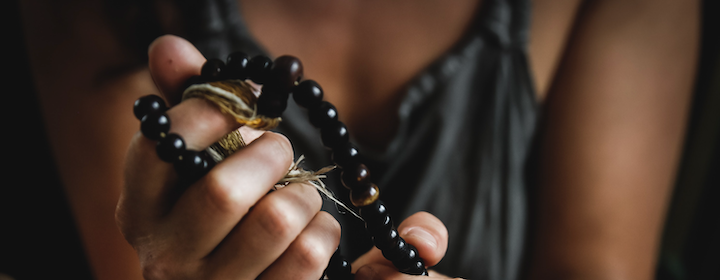I have often felt like an imposter. The first time was when I was in school being coerced into the debate team because my parents thought it would be good to break me out of my shy, timid, and quiet ways; a natural outcome from receiving too many report cards in grade school that read, “Rashmi is a shy, quiet, and timid child, who needs to speak up in class.” It is a visceral memory, standing behind a podium in front of over 300 schoolmates, my knees knocking against each other, my heart thumping so loudly I thought it would leap out of my chest. Actually, I cannot recall anything I thought, only the terror of looking stupid, and the abject fear of not being able to answer my debate opponent and losing the debate for my team. I was such a good little girl, obedient, loyal, a good student, and above all the model child and good daughter. Who was I? I was whoever my parents, extended family, teachers, society wanted me to be. No wonder I felt like an imposter.
So the question “who am I?” has lived within me implicitly from…? I can’t even remember when. The question seems to have been there all along. I grew up in a Hindu household, my grandmother waking up to meditate at 3 a.m., reading the Upanishads at 6 a.m. on the patio in her white sari, my mother and father lighting the lamp morning and evening at the altar in our home, diligent about saying their prayers. Conversations about Truth were mixed in my head with being an honest, and truthful girl, along with stories about Gandhi and his high regard for honesty, along with more stories about my father’s discipline and diligence, and high standards for what was right and good. So, as the good girl I continued to shape myself to what was expected, acceptable, accommodating to fit in with the prevailing standards and models of goodness, truth and honesty. In the process of looking for support, love, and approval on the outside, I lost touch with my own deepest Nature, and the ultimate truth of my Being. The gap created by this loss of connection with Being got filled with all my ideas, beliefs, and images of what “I” meant, what good meant, ideas and self-images of – “I must be kind, I am the unselfish one, the generous one, I should be humble, I definitely cannot be angry, I am the hardworking one…” and the list goes on.
Trying to be good all the time is exhausting. Let me rephrase, trying is in and of itself exhausting. Maintaining any image or identity, accelerates a relentless inner striving. For me personally, this striving came with a searing unceasing inner agitation, life felt effortful, exhausting, a suffering so deep that it led me to the Buddhist path, to meditation and back full circle to the “Who am I” question? Who am I taking myself to be? Who am I really? What is Reality?
Looking back now I see that Being was and always had been having its way with me, or else how would I have found my way? Through the simple sitting practice of meditation, coming back to the breath over and over and over again, I saw my mind scattering in a million places. I began to see that what I was calling the Imposter had actually been a Placeholder all along. The Placeholder had a distorted view of Reality. The Placeholder was the “doer” and had no trust in Being. The Placeholder had demands, of herself, and those close to her. And, the Placeholder had a million agendas, many of them based in images, ideals, beliefs, and ideas, looking for support, security, approval and control on the outside. Being identified with the Placeholder I increasingly experienced myself as rigid not soft, hard not yielding, righteous not open, and fearful not trusting.
I began to see the suffering in trying to fulfill any image, or any ego ideal put forth by the Placeholder – the image of being good, the image of compassion, fulfilling the idea of acceptance, or meeting a standard of kindness – none of it felt true, none of it felt real. So when I was introduced to the practice of Inquiry it opened up a whole new understanding of the disconnection from Being, the idealizations that took its place, and all the hurrying, the relentless doing, the pain, restlessness, and agitation that followed. With Inquiry Presence became my guide, not the Placeholder. With Presence, I was willing to be more immediate, to rest exactly where I was with asking questions – What is the truth of my experience right now? Who am I taking myself to be? What is missing in this moment? Is there an agenda here? Whose agenda is that? What does rejection feel like? And so on.
As Lao Tzu said, “ a good traveler has no fixed plans, and is not intent on arriving.”
Asking open-ended questions is like opening the windows, a breath of fresh air in a stale room, bringing alive wonder, a joyful curiosity, a relaxation with not-knowing, a vigor and vibrancy, a delight in any and all experience — our Being showing up in the living moment. Yes, it is not a fantasy that in any moment it is possible in this lifetime to realize the freedom of Being.
What is your experience with asking questions? Do they bring you alive and closer to being where you are?
If you are curious about anything I’ve shared, and want to know more, please join our women’s class on Saturday mornings at 10 a.m. (imcw.org) or email me at rashmi@takeamoment.com.



